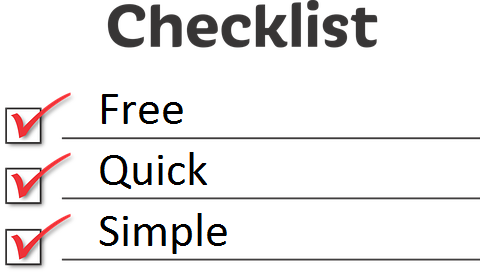Focus Mobile App Development on 4 Key Goals

Mobile app development begins with a decision about when and even whether to build one.
It is based on a simple question: Why is a mobile app necessary?
Some people may mix mobile Web pages together with mobile apps in their thought processes.
As we will see in a moment, the two are related at times and dramatically apart at other times.
What matters is making a commitment to develop an app or waiting until later for the right reasons.
Mobile Pages Versus Mobile Apps
Just to be clear, mobile pages are designed for smartphones that have a Web browser.
The presentation of the mobile pages is entirely on the Web site. They have a small screen resolution and few photos and graphics to respect the bandwidth costs that go with smartphones.
The performance of those pages is largely under the control of the Web site, although the visitor’s bandwidth plays a role as well.
Any functionality on the pages is delivered via the site and downloaded into the phone.
Distribution is somewhat out of the control of the site and in the hands of the visitor. The site has to promote the mobile pages and hope that the user sees the promotion, visits the site and returns in the future.
Web sites without mobile pages will usually see mobile visitors consume fewer pages, click on fewer ads and return less often than desktop users.
For these reasons, it’s important to plan on developing mobile pages. It’s also important to be careful about how much time and effort go into those pages because of the potential cost and return on investment.
It’s even more important to consider the time and effort that go into mobile apps because they can easily cost much more in time, labor and money than mobile pages.
That leads us to the four goals in mobile app development. They are based on the above description.
1) Presentation
Mobile apps provide greater control over the presentation specific to the type of smartphone.
But in many cases that same presentation can be created with mobile pages.
In fact, some mobile apps display links that simply send the user off to a mobile Web page.
The bottom line is that whether a page or an app makes more sense depends on how it will be used.
2) Performance
Download a mobile app and watch the size of the files being downloaded to get an indication of the impact on performance.
An app from a content site will most likely have small file sizes, while one that provides extensive functionality will have large sizes.
Some of the more popular apps for recreation come from MapMyFitness including MapMyWalk, MapMyRide and MapMyRun.
Each one provides the ability to use GPS tracking to follow someone on a route, measure their pace and distance, show them their location, save the route to a journal and share it with friends.
All of this functionality will naturally work faster of it is stored on the phone rather than pulled from the Web site.
3) Functionality
A service that provides such extensive functionality is a great reason to develop a mobile app.
But developing that functionality to work on a smartphone will significantly drive up development costs.
A content site typically does not have extensive functionality and so has fewer reasons to develop an app.
4) Distribution
The fourth goal to consider and one of the most compelling is distribution and the ability to attract frequent return visits.
Distribution in the mobile environment is not unlike getting an email subscriber or social follower.
Once the user downloads an app onto the phone and sees the icon there every day, they are much more likely to use the app, become a paying customer or a return visitor to the site.



 Promise Media offers online business tips and best practices for content-rich websites.
Promise Media offers online business tips and best practices for content-rich websites.